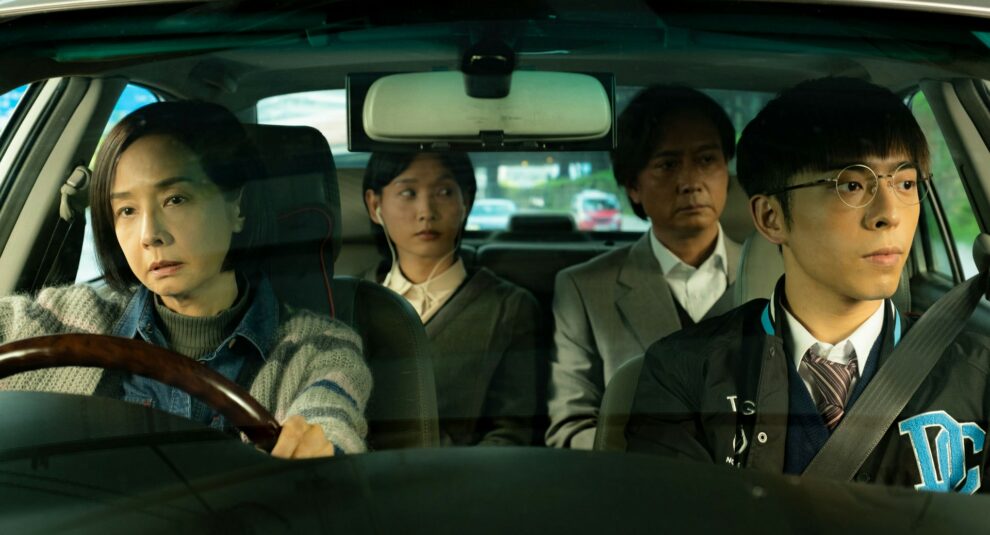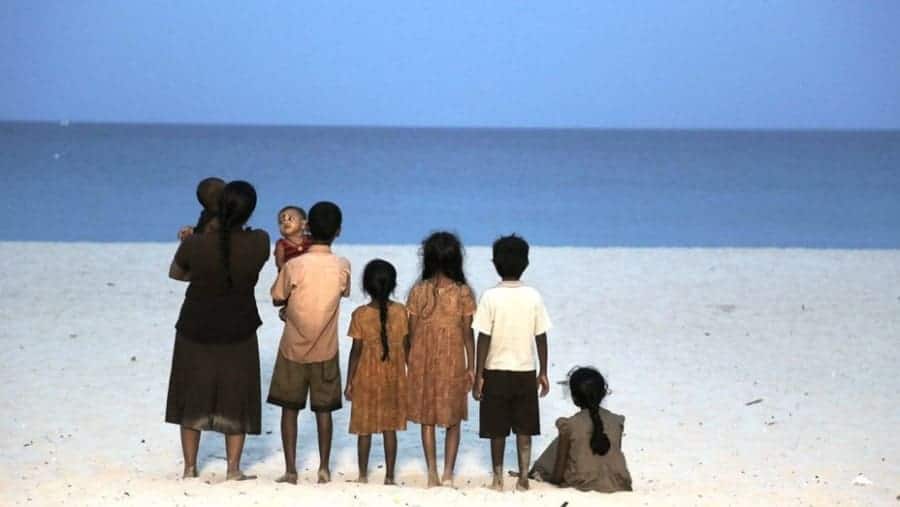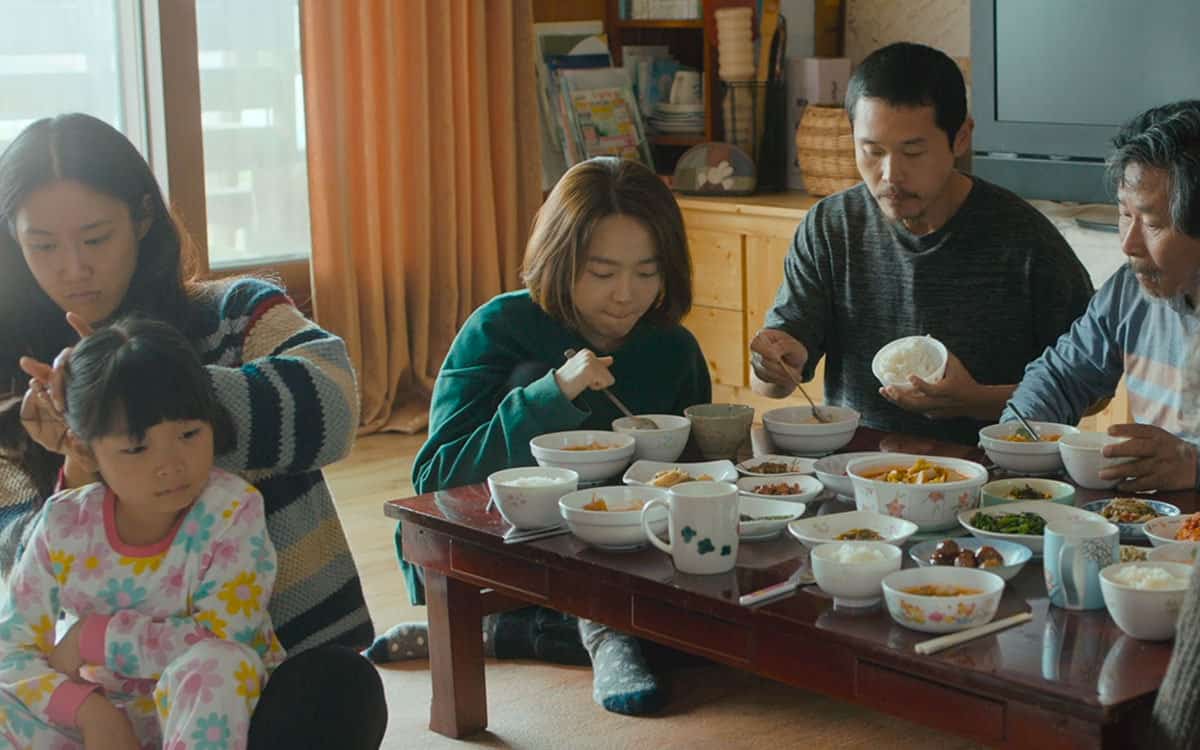The progress of director Eric Tsang Hing-weng has been gradual but steady. Hailing from a journalism and communications background at University, he has participated in Johnnie To's Fresh Wave Short Film Competition a number of times, working first as a DOP on the award winning “Liu Yang He” and then as a director himself with the Best Film winning “The Umbrella” followed by “A Thousand Sails”, which premiered at Sundance. In 2022, he finally progressed from the constraints of the short form to make his feature-length debut with “Hong Kong Family”, which debuted at the Busan International Film Festival.
“Hong Kong Family” is screening at Osaka Asian Film Festival

Middle-aged couple Ling and Chun head to their ancestral home for the winter solstice dinner with their children Yeung and Ki. All through the journey, the two continue arguing over petty matters, an argument that continues when they reach their destination. At the ancestral home, Ling's brother has an argument with his mother over finances and leaves the house in a huff, whereas Ling and Chun's argument too escalates, with the wife asking for a divorce and her husband assaulting her and Yeung in the process, resulting in the son leaving the house and their family.
Eight years since that fateful day, there have been no winter solstice dinners in this household. Chun and Ling have not divorced but live a quite, lonely life of compromise with each other. Yeung hasn't returned home or seen his father since that day and Ki has married, divorced and moved back in with her parents. But when Joy, the daughter of Ming, returns from overseas around the time for winter solstice and expresses a desire to have a dinner once again on the day, the members of the family must find it within themselves to reconcile and pick up the pieces to put together what once was a family.
Basing the story off his own life growing up, Eric Tsang co-writes and directs this accomplished dissection of the definition of a family through these varied yet very pronounced characters, each with their own journeys and character arcs. We observe Ling in her work as a domestic helper to a father and son, almost trying to adjust within a surrogate family and household that is cheerful and caring, the way a family should be like, in her eyes. Her household may not be the same, but that doesn't stop her yearning for it. Played with wonderful conviction by seasoned actress Teresa Mo, Ling is a vulnerable mess who deep down knows she had pushed her husband to breaking point eight years ago.
Chun, for his part, blames his failings as a husband, father and provider for the way his family turned out, and lives with that guilt, despite desiring for them all, especially his son, to get back together. Also a veteran of the industry, Tse Kwan-ho plays Chun in a very effectively understated manner, his meek personality feeling all too natural. Through his arc, Tsang contemplates how necessary it is for one to accept and take responsibility for one's failings and shortcomings in order to move forward as a unit, even if it means doing something drastic.
Ki, the most silent of them all, meanwhile is still trying to figure out the trajectory of her life. Divorced and jobless, she has tried to move on on her own, the failed marriage coming more out of a desire to get away from it all, but finds herself back. She is aimless until she meets a travelling foreigner, awakening a sense of adventure and discovery within her, a stark contrast to her mundane existence. In the lovely Hedwig Tam's hands, Ki comes across as this beautiful soul who the audience finds itself rooting for to find a path in life. Her character highlights how, for some within the family, it is necessary to in fact break apart from their loved ones, without any ill feelings of course, in order to be the best versions of themselves.
Check out a previous interview with the director
Elsewhere, Yeung has graduated and is trying to set up a gaming company with his best friend and business partner, but even in his work on the AI game he is developing, he tries to find a connection back to his family and especially his estranged father. This particular subplot is the highlight of Tsang's feature, as it contemplates the necessity of communication and connection between loved ones in order to stay together. Connection, in particular, is a running theme for all characters but it is portrayed no more explicitly and effectively than in Lui's arc. For wider exposure to the production, Tsang casts immensely popular boyband Mirror member Edan Lui in this pivotal role, which proves to be his ace. Only a few features old, this is easily Lui's most challenging role but one that proves to be his most accomplished performance yet. Fellow band member Anson Lo also features in an extended cameo, as does Angela Yuen as Joy, who he worked alongside in “Chilli Laugh Story”, but this is clearly Lui's film.
Just like the narrative, the cinematography too keeps the characters front and center, without trying anything too flamboyant. In one very impressive and important scene which involves Ling and Chun both in the frame, the camera's unwavering focus on a breaking down Lin, despite Chun being the one delivering all the dialogues, makes this pivotal scene about a relationship finally reaching the end of the line, a mesmeric, heartbreaking watch. While doing that, the camerawork also manages to showcase some beauty in the mundane, and the scene with Hong Kong seen in the nighttime from a mountain is particularly beautiful, even if the CG-rendered scenes of Yeung's AI game leave a bit to be desired.
Ultimately, “Hong Kong Family” is a dignified debut from Eric Tsang Hing-weng, which finds its strength in its characters and the very natural performances from everyone involved, including veteran actress Alice Fung So-bar. In an earlier interview Tsang had with our site, he professed love for Edward Yang's “slow cinema” and for Ann Hui's attention to the culture of Hong Kong and his debut feature is a strong showcase that shows that he is willing to wear his influences on the sleeve and yet make something distinctly individual of his own. Audiences will want to remember his name and keep a close eye on his future endeavors.
















